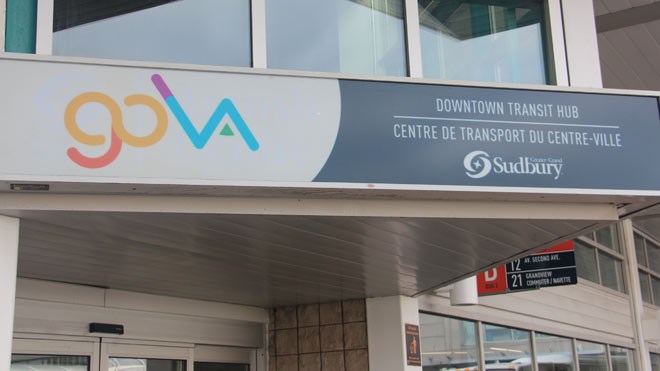There is new security at some city-owned locations, including the downtown bus terminal, as part of a pilot program undertaken by the City of Greater Sudbury due to increased security concerns.
A city spokesperson told Sudbury.com recent trends have shown “increased volume and severity of security-related incidents at the downtown transit hub,” and as a result contracted security guards were replaced by municipal law enforcement officers, on a pilot basis, for the remainder of the year.
“This enhancement is a $0 net increase for 2023,” said the spokesperson.
Stefany Mussen, manager of security and bylaw services, told Sudbury.com the replacement was in the works for some time.
“It was planned as part of a pilot project to increase the safety and security of the transit terminal downtown," said Mussen. She said the city has been slowly replacing contracted security with municipal law enforcement as they have training more suited to the needs they are facing.
“What we've observed and monitored over the past couple of years is an increased volume of security-related incidents at transit, as well as other places in the community, and city facilities,” Mussen said.
She said contracted security have an “observe and report function” and those reports are sent to police.
“The police have a very high call volume to deal with,” said Mussen. “And so the pilot program is really to try and take away some of those lower priority calls for police so they're free to respond to serious crimes and violent incidents.”
By moving to municipal law enforcement, Mussen said it’s just bringing security in-house. “We have more control over what kind of training they're provided, what partnerships they have in the community, and things like that.”
Data from 2022 shows that violent crime was up by 5.3 per cent in Greater Sudbury last year, while property crime dropped by 9.3 per cent, yielding a combined total incident decrease of approximately one per cent in criminal offences.*
(Preliminary data from GSPS from earlier in 2022 showed violent crime was down slightly, but these numbers were subsequently updated by police upon receiving new data)*
In Sudbury’s downtown, violent crime was halved and property crime dropped by 32.23 per cent, yielding a total combined decrease of 39.72 per cent.
The bus station is also an area where Greater Sudbury Police have applied Crime Prevention through Environmental Design (CPTED).
An example of first-generation CPTED in the fenced area between the LCBO, Tim Horton’s and downtown bus terminal, said Const. Mickey Teed in a previous Sudbury.com story.
Teed is a member of the GSPS Community Response Unit and trained in the first generation of CPTED, through CPTED Ontario.
Teed said then that the fence installed to obstruct hidden pathways created a defining environmental barrier. “And that has decreased our calls for service in that area.”
But one of the originators of the concept, a former police officer who grew up in Sudbury, told Sudbury.com that if GSPS is only using the “first generation” of the tool, rather than the updated version meant to include the needs of vulnerable populations, the plans could be causing a vicious cycle.
“You can put a light in, you can trim the hedges and you could cut some crime opportunities,” said Gregory Saville, co-founder of the International CPTED Association, inaugural chair and a long-time CPTED and crime prevention practitioner. “But the problem with that was you never dealt with the opportunity or with the motive, which is like hacking the branches and not digging at the roots.”
Mussen said that in 2021, the city began a pilot program wherein municipal law enforcement would respond in a mobile capacity to issues at city facilities, including transit, city-owned parks, and Greater Sudbury Housing addresses. In 2022, that service was made permanent through council approval.
“We've slowly kind of added a little bit more to the program, " she said. “Council approved this year an overnight response team at housing locations, and this pilot program on transit. So yes, slowly, we have been seeing an increase in this service level.”
Municipal law enforcement officers are training through STEP Training Inc., a trademarked program that specializes in de-escalation techniques and how to communicate effectively. “They provide some conflict resolution and use of force training to our staff,” said Mussen.
Greater Sudbury building inspectors, housing and community response staff, security services and transit operators are all trained by the same company. As is the City of Toronto, including their police and tactical services, as well as the City of Mississauga and the Ontario provincial government.
Then, municipal law enforcement receives on-the-job training.
“Then they receive in-person training with a more senior or experienced officer that they'll be working with, as well as our security coordinator and myself for on the job training,” said Mussen.
The city will continue to monitor the security pilot program.
Jenny Lamothe is a reporter with Sudbury.com




.png;w=120;h=80;mode=crop)